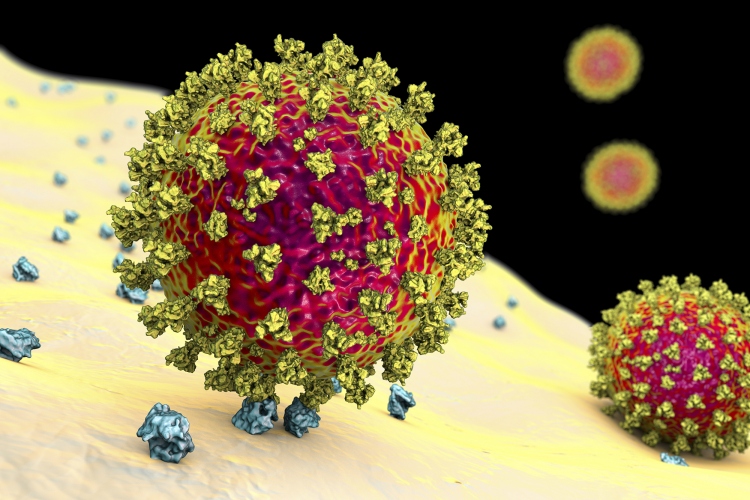Immunologists say that though the present vaccination campaign will indeed contribute to slowing the pandemic, next-generation vaccines must be developed now itself

The spread of Covid-19 variants is not an immediate problem but it's time already for next-gen preventives to tackle them, say scientists as countries fine-tune their vaccine dissemination programmes and the race to put more vaccines in the market gathers pace.
Work on vaccines will have to continue on parallel tracks “one to tackle the SARS-CoV-2 virus with first generation vaccines and the other to prepare for possible mutations and new variants" say experts as they map the future course of the infection.
Responding to concerns on the effectiveness of current vaccines in the face of emerging variants, immunologist Satyajit Rath said vaccine-resistant virus variants are either not present or not spreading in sufficient scales and rates to be an immediate problem.
And though the present vaccination campaign will indeed contribute to slowing the pandemic, next-generation vaccines to deal with the most vaccine-resistant of the emerging variant viruses will need to be developed from now even as we begin to vaccinate communities with the first-generation vaccines, the scientist from New Delhi's National Institute of Immunology told PTI.
An editorial in the journal Virulence earlier this week noted that a threat to vaccine effectiveness comes from emerging strains, both existing -- such as the ones reported from the UK, South Africa and Brazil -- as well as those yet to come.
The variants found so far have undergone changes or mutations that mean they can infect human cells more easily than the original version of the novel coronavirus that started the pandemic.
A recent study by researchers, including those from The Rockefeller University in the US, suggests that mRNA vaccines for COVID-19 may need to be updated periodically to avoid potential loss of clinical efficacy against the newly arising variants.
The study, posted on the preprint repository BioRxiv, is yet to be peer-reviewed or published in a journal.
An mRNA vaccine uses a synthetic RNA (genetic material) encoded with instructions to make specific proteins of the SARS-CoV-2 virus so the body can generate an immune response without getting the disease.
In some good news, studies have suggested the mRNA vaccines by Moderna and Pfizer appear to work against some of the variants they were tested for.
A small study involving scientists from Moderna found the US pharmaceutical company’s COVID-19 vaccine appears to work against new, more infectious variants of the pandemic virus found in the UK and South Africa.
The yet to be peer-reviewed study suggests that antibodies triggered by the vaccine can recognise and fight the new variants.
Another research released last week suggests the Pfizer vaccine provides protection against the UK variant.
According to experts, the current COVID-19 vaccines are directed at the spike protein of the SARS-CoV-2 virus, and expect to trigger the formation of antibodies that prevent the spike protein of the virus from sticking to human cells during infection.
The effectiveness of these vaccines is likely to be affected most by changes in the cell-binding part of the viral spike protein.
According to immunologist Vineeta Bal, with time the effectiveness of current vaccines will decrease as the coronavirus will mutate even in the future.
“A single new mutation in the currently prevalent virus is unlikely to be sufficient," Bal, from the Indian Institute of Science Education and Research in Pune, told PTI.
The virus, for its persistence, needs to maintain the ability of the receptor-binding domain (RBD) of the spike protein to bind to the ACE2 receptor intact.
The angiotensin-converting-enzyme 2, or ACE2 receptor, is the protein that provides the entry point for the coronavirus to hook into and infect a wide range of human cells.
RBD is a key part of a virus located on its ‘spike’ domain that allows it to dock to body receptors to gain entry into cells and lead to infection.
Bal noted that in the long run, vaccines may provide lesser protection due to the evolution of the virus.
There are currently two variants for which there are insightful data sets. One is the British variant, B.1.1.7, and the other is the South African variant, B.1.351.
Commenting on the time it could take to modify vaccines to suit future variants, Rath said it could be much easier and quicker to come up with next-generation vaccine variants since it took the global community less than a year to come up with multiple vaccines to a new virus.
Although the new variants are cause for concern, Rath said “the real practical question is, how much 'extra' protective capacity do vaccines generate, and does that 'extra' amount compensate reasonably for the 'drop' in efficiency? It is this evidence that we should be looking for."